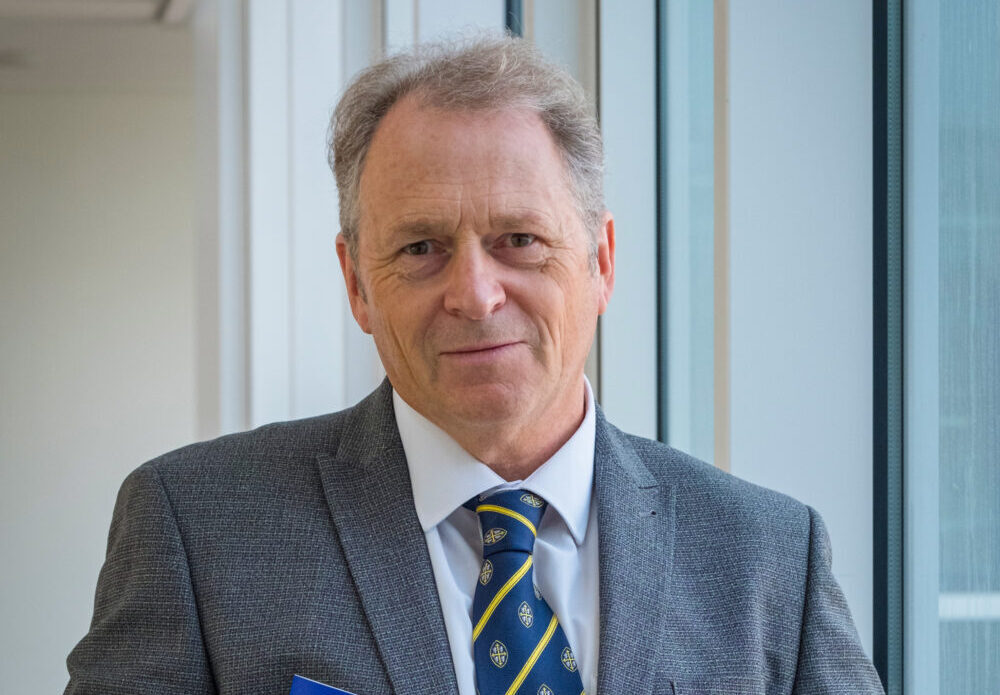Graduating from the University of Birmingham in 1986, Mark Atkins has been a teacher for 36 years. During this time he has held numerous school leadership positions including a UK headmaster and principal of a number of international schools. Atkins has become something of a specialist in leading projects to establish international schools. In his roles as Director of Education for a Dubai-based education company and as Chief Operating Officer of a large UK international school group, he is responsible for the establishment of British curriculum international schools in Dubai, Abu Dhabi, Qatar, India, Singapore, Malaysia, Egypt and China.
Atkins has held governor positions at a number of international schools and is Chairman of Governors of a specialist UK pupil referral unit (PRU) established to provide for behaviourally challenged students in a deprived area of north Kent.
He is the founding Principal of Durham School Dubai, which opened its first branch in the emirate this August. In conversation with Education Middle East, Atkins talks about the key learning from his 36-year long career, what Durham brings to Dubai and why great teachers need to be cherished. .
In your 36 years of experience, what is the one key learning that has stayed with you as an educator?
Experience has taught me that teachers must inspire; a student excited about a lesson with a motivated and dedicated teacher is a student that will learn. The personality of the teacher and the connection with the students is the key to successful education; you can impose lesson structure and format, and insist on using various resources but I believe a great teacher should be set free – these special teachers, those with instinct for what makes every individual child tick are like gold dust and should be cherished. My favourite Japanese proverb: ‘Better than a thousand days of diligent study is one day with a great teacher’.
You have held numerous school leadership positions. What role have you enjoyed the most and why?
Durham is my last school and I am determined it will be my best and I am thoroughly enjoying every moment. I have been many years in school set-up and school business management, and worked with wonderful people along the way but there is nothing quite like having your own school. Here, at Durham, I intend to apply all I have learned over a long career to make sure that, as I sit at the fireside in my dotage, Durham above all else, is the school I am most proud of.
Durham has a 600-year history. What does the school bring to Dubai?
Durham School in the UK is six centuries old and has an established reputation for excellence. We are proud to be a genuine partner of this great school and fully intend to live up to the name and the heritage. This means being an authentic branch school, providing our students and parents with a genuine, high-quality British independent school experience; we must be more than just a name. Let us not forget that Durham School also joins the Durham international family. With friends and colleagues in Kenya, Qatar and the UK, we are privileged to be working closely with some of the finest educators on the international stage. The opportunity for collaboration between our schools is not one to be missed.
As the Founding Principal of Durham School Dubai, what do you aspire for the school five years from now?
A school cannot be all things to all men. Durham Dubai is not a school with an identity crisis and so, five years from now, I hope that when people hear the Durham name, they think of traditional, best of British education with the ethos, values and structure you would expect of a high performing UK school. Our MARK values (Moral integrity, Ambition, Responsibility and Kindness) are woven into all we do, and I sincerely hope that we will have been proven to live up to these values. I am also determined that Durham School Dubai will be a school ‘for’ Dubai not a school that just happens to be ‘in’ Dubai. We take very seriously our responsibility to be a school that makes a meaningful contribution to the UAE by producing leaders, entrepreneurs, artists and visionaries who will take this magnificent country forward.
If you had to share a tip to teachers at your school to get the very best from students, what would it be?
Aim high: set high standards, have high expectations, and the children will always come up to them. ‘Good enough’ is never actually good enough and it is incumbent on all teachers to ensure that not a drop of talent goes to waste – find a way to bring it to the fore. Also enjoy yourself; enthusiasm and enjoyment are infectious.
We are told that you have become something of a specialist in establishing international schools. In your view, how does the GCC region fare as far as penetration of international schools is concerned?
The GCC is very well catered for in that it has a wide variety of good schools offering different curriculums at a range of price points. Since the mid 2000s, we have seen the establishment of UK branch schools across the Gulf complementing established local brands, expanding the choice for parents. With formalised inspection by local education authorities and increased competition in the education sector, the quality of education has never been better.
Behavioural challenges is another area you specialise in. Tell us how schools can equip teachers to deal with students exhibiting behavioural challenges.
I am originally from the Medway Towns in North Kent, one of the most socially and economically deprived areas in England with one of the highest school exclusion rates in the UK. For the past 7 years, I have been incredibly fortunate to work with Gillingham Football Club as Chairman of Governors for a specialised independent school for students who have been permanently excluded from education for behavioural and other difficulties. This is a world away from my experience in some of the finest UK and international schools and has been a steep learning curve for me. I have the highest admiration for the teachers and leaders in the school whose dedication, compassion and patience know no bounds. Dealing with challenging behaviour requires very special teachers with great talent. What I have learned from them is the importance of structure, routine, patience and understanding. Successful teachers are consistent, have high expectations, are skilled at defusing conflict and calming difficult situations. Students with behavioural difficulties, like all students, have ability and the capacity for success but often experience great frustration as their learning styles require a departure from the usual ways of teaching. Small class sizes and individualised attention is essential as is the student’s knowledge that the teacher is not going to give up on them. Additionally, frustration can be compounded by additional learning needs, sometimes undiagnosed, that could be underlying factors which need to be addressed as a part of the student’s individual education plan.








